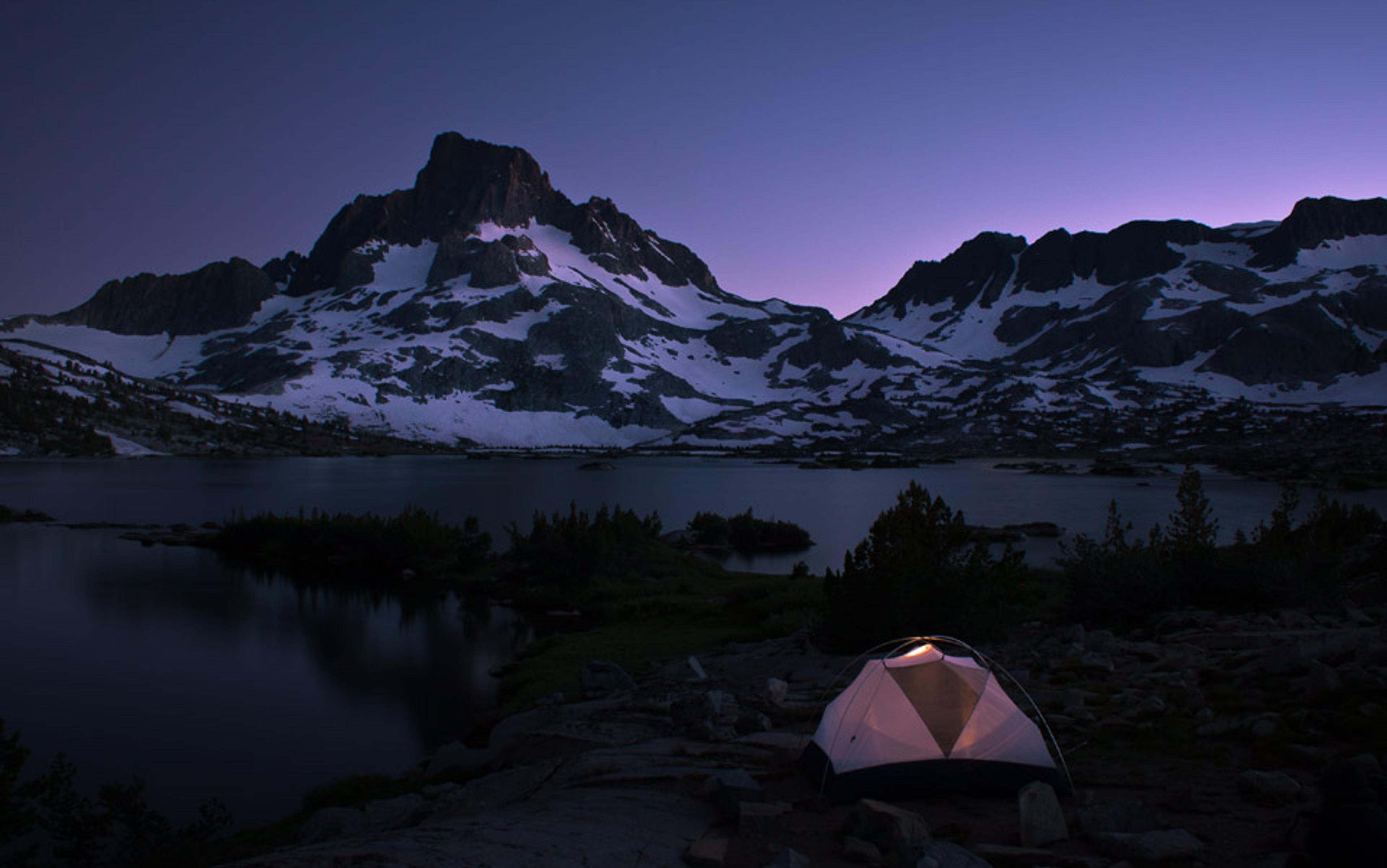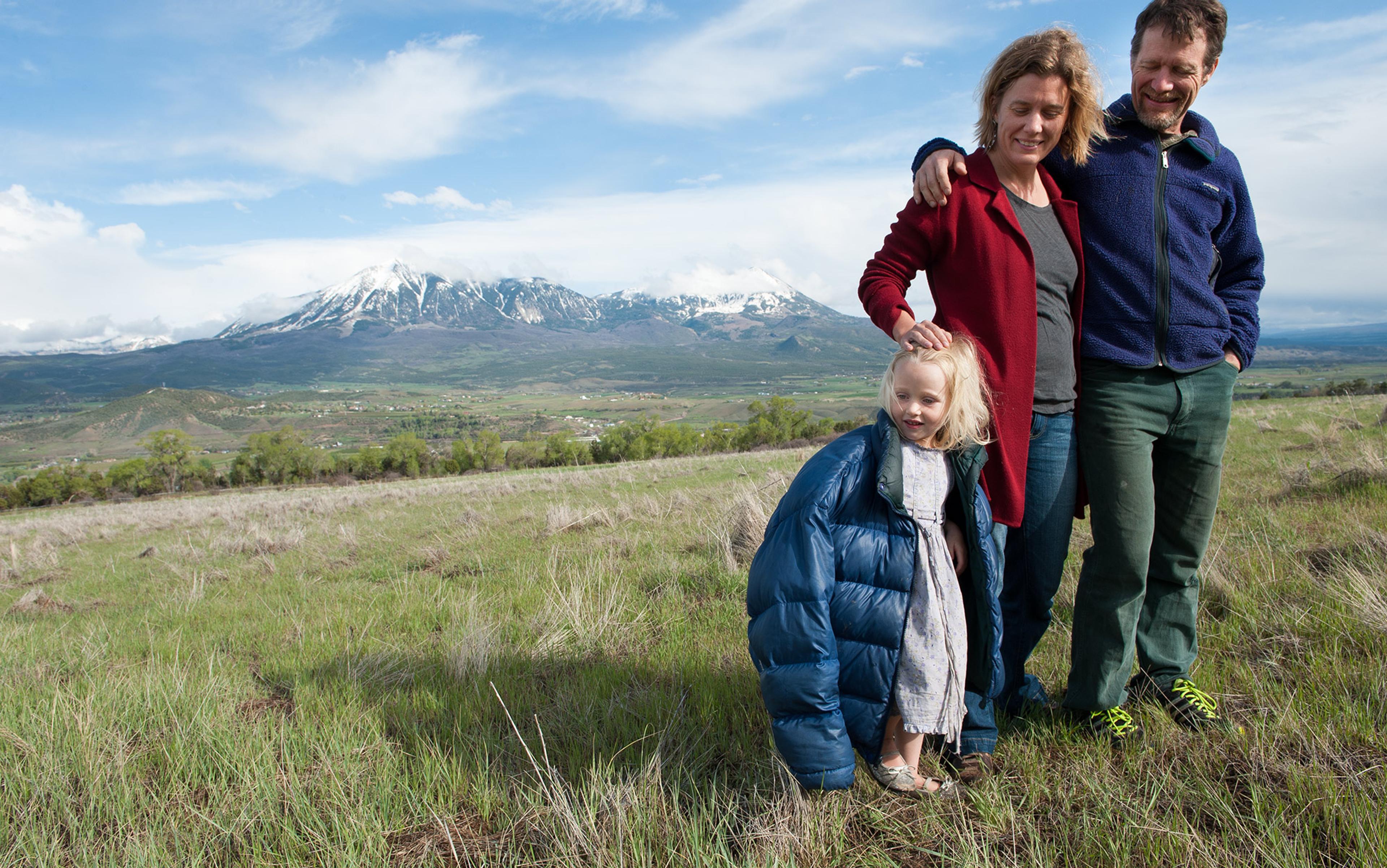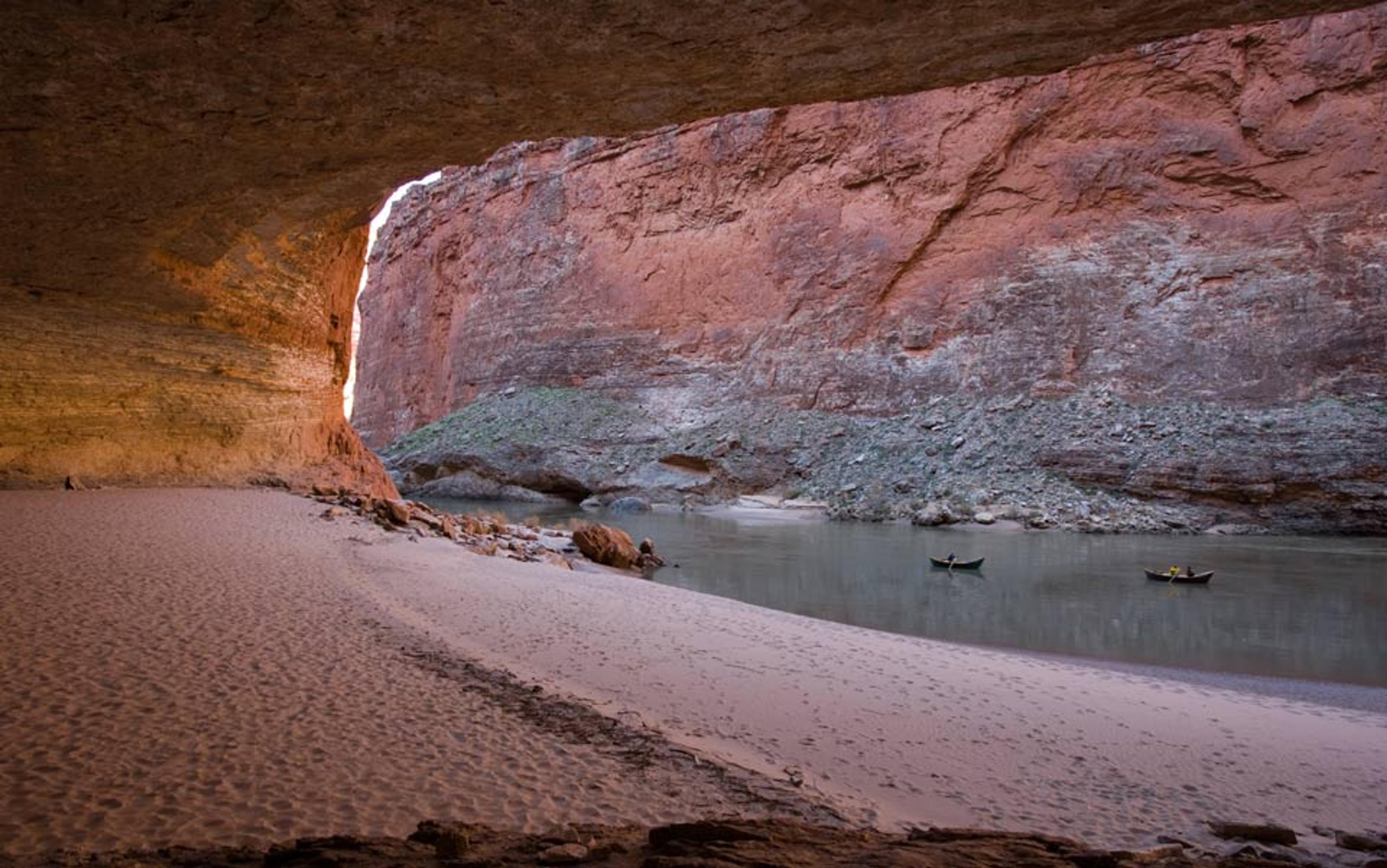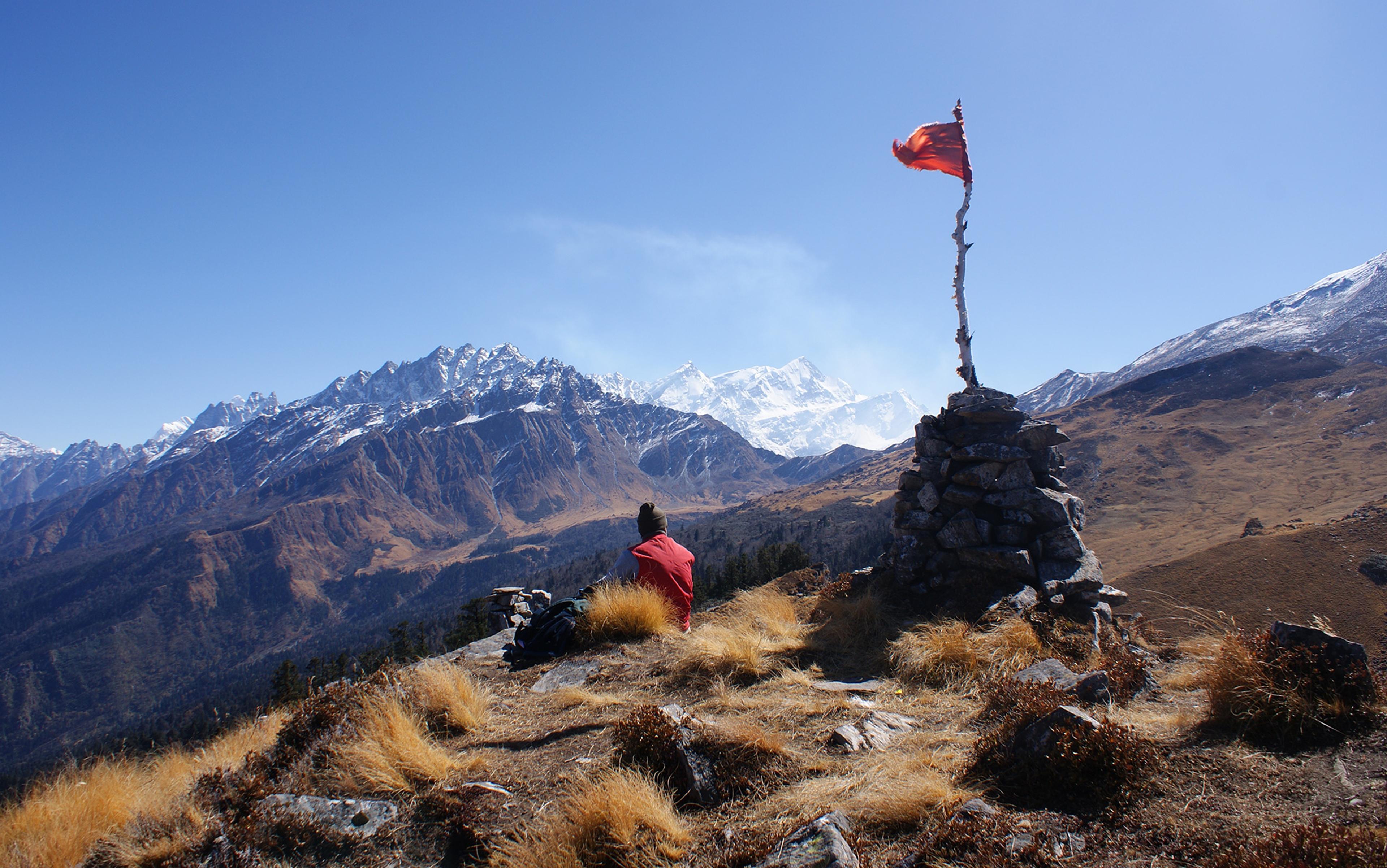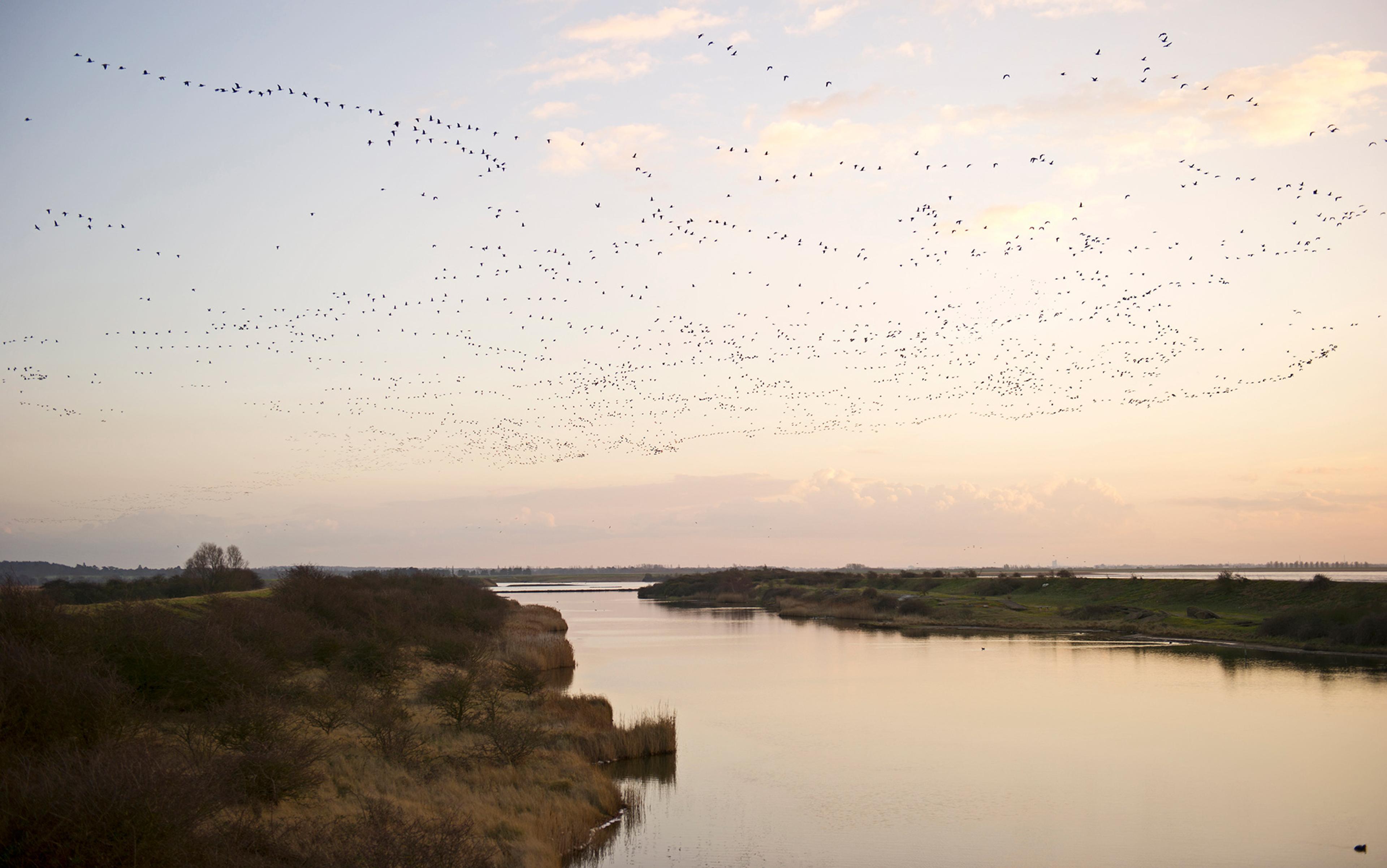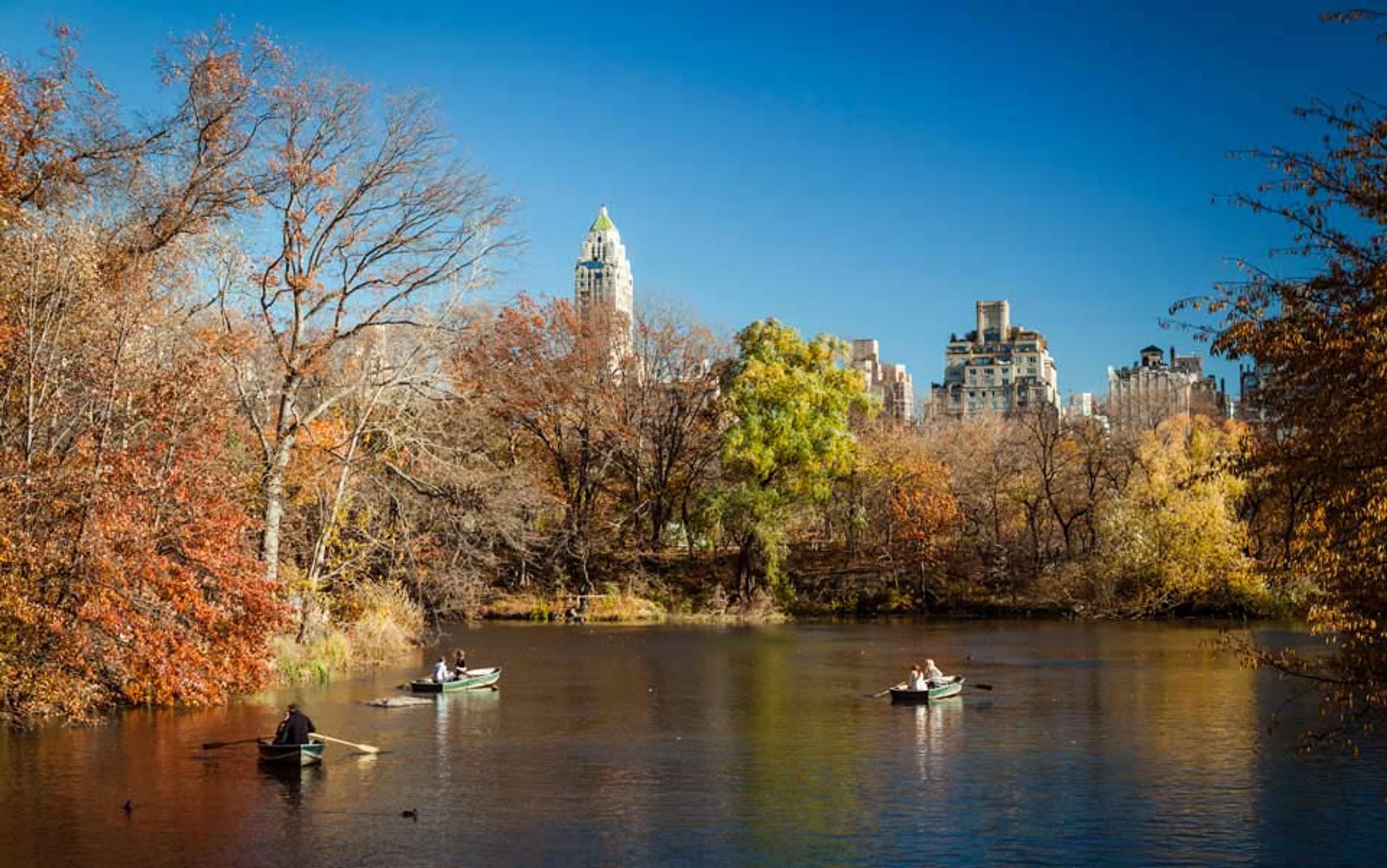In 1996, I stepped into a New York writer’s dream: a rent-stabilised two-bedroom in a pre-war doorman building overlooking the Hudson River. Built in 1931, the great behemoth of a building contained nearly 300 apartments and a respectable smattering of famous musicians and artists. To the north, a curving boulevard dotted with gorgeous 19th-century row houses. To the west, a ribbon of green that ran many miles along the river. And the Upper West Side itself was foodie heaven. I thought, as any New Yorker dumbstruck by her luck would have: ‘I will live here forever. Yup, they will have to carry me out feet first on a stretcher before I ever leave.’
By late 2009, that moment had arrived. First, in the summer of 2000, came a tick bite that seemed to slash and burn me to the ground. I never recovered, in spite of antibiotic treatment. Then in 2005, a developer bought my building and for two years his team demolished and renovated 150 apartments, selling them as luxury condominiums. Swarms of demolition workers brought brick dust, mice pouring forth out of the walls, bursting pipes and multi-floor floods. My ceiling fell in from a torrent of water, my bedroom wall slid off like putty, my oak floors warped from erupting wastewater.
By the time the renovation was complete, my sanctuary was infested with mold and probably strange bacteria; back in the 1930s, they insulated between floors with rock wool, which holds an astounding amount of moisture and can grow mold and bacteria after flooding. I was bedridden, too ill to ride the elevator down one floor and walk across the lobby to get my mail. Afflicted by environmental illness, I became insanely reactive to everything – most clothing, my gas stove, a new mattress, the faint odour of fragrances on my partner, Paul, when he came in from work. And the noise, oh the noise. Every winter night, the rejiggered steam heat pipes shot out cannonballs and pistol fire. And the schoolyard under my window, once nearly deserted, was now packed all day long with screaming kids.
I had to leave, but it was like leaving my self. I ripped free of my emerald Oz only when I felt like I was going to die. We departed on Christmas Day 2009, and drove south to one of the loveliest sanctuaries in Georgia – Serenbe, a 900-acre new urbanism community crafted by Steve Nygren, a restaurateur, and his wife, Marie Nygren, a chef. I sank into the king-size bed at their inn, and knew I was never going back.
It would have been nice if I could have lived forever in Serenbe’s bed and breakfast, but that wasn’t possible, due to cost and the fact that the entire inn often rented out to wedding parties. So we travelled around the South, driving hundreds of miles here and there to check out supposedly non-toxic rentals, none of which were liveable. All the homes made me sick, and I broke three expensive leases. I was ‘tilted’, to use the acronym coined by Claudia Miller, a physician and environmental health specialist at the University of Texas. TILT stands for toxicant-induced loss of tolerance – a condition in which the immune system sustains too extreme or prolonged an exposure to toxins – man-made or natural. The individual, rather than recovering, suffers a strange breakdown, and becomes exquisitely sensitive to low doses of chemicals. I wrote about Miller’s work on environmental illness at length in Discover magazine last October.
We came to the proverbial end of the road in Loxahatchee, Florida – horse country – in January 2011. The owner of a bed and breakfast favoured by equestrians had sworn her place was mold-free. She’d even had a mold dog sniff it out, and proudly waved the certificate at us. But I could smell mold everywhere, and a few days later, we fled. Now what? We were homeless, it was winter, and Paul said: ‘Why don’t we camp for a few weeks?’
What the heck. We already had two backpacking tents, having tried it for a few nights in the Georgia mountains. We could view it as a vacation while we figured out our next move. So we drove to the nearest RV park and set up our tents alongside the fancy rigs.
And there, in that park, lying on a thermarest mat in a tent pitched on grass, my life took an unexpected turn. Because, quite simply, I felt better.
In one sense, I was about to discover an utterly simple answer (fresh air) to an unutterably complex condition (environmental illness). I had suddenly lightened my toxic load. As Bill Sothern, an indoor air quality expert and the founder of the Microecologies firm, told The New York Times last May: ‘The air indoors is 10 times more contaminated than the air outdoors at any given time.’ I didn’t have to test for, or calibrate, or catalogue, the innumerable potential contaminants, since they varied from place to place – fresh paint, synthetic carpet, formaldehyde, mold overgrowth, flame retardants, fabric softener, pesticides, second-hand smoke. I needed only to leave it all behind: to live, temporarily, outside.
But living outside changes you. You slowly unspool from civilisation, and the more you embed yourself in nature, the deeper the alchemy. Most of us sense this; it might be why camping, hiking and wilderness adventures seem to be an ever-greater obsession.
A few weeks later, we drove into 200,000 acres of national forest in North Florida. The drive from the forest edge to the campground itself takes about half an hour, through the choiring strings of gaunt loblolly pines rising like endless throngs of organ pipes reaching for the light. The hidden campground, on a spring-fed lake, is a moist and lush wonderland festooned with live oaks, pines and Spanish mosses. One lone cypress grows on a spit of land in the lake. Everybody loves it for its anomalous, gnarled, stubborn insistence on living where it unfortunately landed.
We chose the loop with water and electric. There, fitful insomnia gave way to deep sleep. (Yes, research from the University of Colorado confirms this effect; camping for one week, away from electric light, resets even the most stalwart night owl’s circadian rhythms.) My constant, aching muscle tension eased because, I guessed, I was nearly off grid, far from electrosmog. I ate fish an hour after it was caught from that pristine lake, and discovered that my body liked pure food. In short, the frisson of reactivity I had lived with for years was gone. I gazed up at a cerulean sky – a blue so blue it seemed an invisible hand had peeled wax paper off the stratosphere. I taunted the crazed mosquitoes banging against the mesh of my tent. I got stronger. We took long constitutionals, my old-fashioned choice of word for walks. A sunny day was laundry day: I heated water in a Le Creuset pot and washed my clothes by hand, hanging them to dry on a nylon line strung between trees. I loved to bury my face in their fresh scent.
Most striking, however, was my shift in mood. Rumination and anxiety seemed to melt away. And it was not simply the cliché of being in nature, for all nature was not equal. Over the next few years of frequent camping, I found I could always correlate clean air with clarity of mind and mood, as if my body was a pollution-sensing device calibrated to detect tiny shifts.
I learned to walk around a campsite and simply stand in the middle, feeling my body’s response, before I chose the place to pitch my tent
I discovered invisible ecosystems all around me, pockets of goodness and pockets of badness, carried on prevailing winds, borne on clean or polluted lakes and rivers, emanating out of untouched or developed land, shifting with the seasons. At every campground, high on a hill always felt cleaner. The sunnier sites grew no mold. The lakes where you were allowed to fish as much as you wanted felt good. The lakes in which agricultural run-off led to algae blooms made my body ache and pummelled my mood. I learned to walk around a campsite and simply stand in the middle, feeling my body’s response, before I chose the place to pitch my tent.
I met a retired lawyer who had Parkinson’s disease, a dog, and four cats. She was tent camping in national forests full-time, and boasted that her neurologist said she was doing better than his other patients. I met a family who, after financial and medical reversals, hiked the entire Appalachian trail to recover their sense of purpose and their centre of gravity. I met Roger and Alida. They drank too much, and grilled me fresh venison over their campfire. I coveted Alida’s firestarters – strips of primordial, sap-crusted pine that she and Roger had harvested from their timber. It burned sweet and pungent. One morning she traipsed over to my site and gave me two. I thought they were way too pretty to use, but not long after I gifted them to a young man who was hiking through the forest alone with nothing but a backpack. He borrowed our fire pit and firestarters to make himself a meal.
I continued writing, and Paul continued proofreading, using our aircard wireless adapters to create a hotspot wherever we chose. Dorothy, I thought to myself, we’re not in Kansas any longer. But where exactly are we?
And this is where my story veers from a tale of sickness and health, and rolls away in a different direction. Because the camping lifestyle took me back in time, to archetypes – building a fire, washing a shirt, tarping a tent for rain, resting in heat, rising in the cool dewy morning, foraging for food, sensing a storm not far off on the changing wind, feeling the earth heat up every summer day like a pot on a slow fire, noticing the inevitable exhalation around eight or nine at night when a cool breeze comes out of nowhere and the body sighs with relief. Old sayings suddenly had meaning. The harvest moon at the autumn equinox is bold and big and brilliant – and so named because in the days before electric lights, farmers could harvest their last crops all night long. ‘Red sky at night, sailor’s delight. Red sky at morning, sailors take warning.’ Yes, the timing of that red sky tells you whether dry or wet air is headed your way.
As the naturalist John Muir once said, ‘When we try to pick out anything by itself, we find it hitched to everything else in the universe.’ But not to the world found in cities or suburbs. The natural world is entirely unhooked from homes and hallways and steps and doors and chairs measuring just the right size for humans. That world is rarely 72 degrees and 30 percent humidity, and is certainly not climate controlled year-round. It is not a world in which weather is watched through a window, where if the power grid fails, it’s for a mere hour or a day, and where you rightfully wander from a room for cooking, to a room for watching television, to a room for dining, to a room for sleeping, to a room for washing… with light and dark obeying your whim and desire. No, it is an unpredictable world that demands participation.
We miss the creatures of the wild, so we tame a few – mostly cats and dogs – the great memes of YouTube and Buzzfeed, our perpetual children and compliant alter egos. But wild things intrude suddenly, and endear in odd ways. The nearly blind armadillo snuffling alongside the bushes hunting for bugs. The daddy-long-legs, a species 400 million years old, always clustering together, their spindly legs overlapping each other, on the mesh of my tent under my rainfly. Those spiders were so still and calm, such great meditators, they seemed like my special guardians. They were also amoral cannibals, and I watched one devour a carpenter ant in rapacious, sucking bites. The tree frog that lived under my tarp to escape summer heat. The cricket so mesmerised by my white noise machine that it crawled beneath and sang to it all night. The squirrel that daily tossed acorn shells into my tent from his tree branch and bounced them off my truck, chattering with mischief and joy. And the ants – all of the Southeast is a moving anthill in summer, upon which humans pour Comet, vinegar, talc, Raid, deadly poisons and inspired curses.
Then there was the imaginary fox that turned out to be a stray dog I nicknamed Ralphie, who stole our shoes at night, dragging them to the woods and dropping them there in a secret pile, half chewed. I accused Paul of playing tricks on me and demanded he return my sandals; he accused me of stealing his slippers and said it wasn’t funny. We found our shoes and began to feed Ralphie, but then he stole my shirts off the line and chewed the sleeves. It was his untamed way of leaving his mark and scent on our things, of trying to be part of our lives.
And, most memorably, the enormous, mutant scorpion that kept trying to climb into my tent and hide in there with me after a flash flood – terrifying me utterly – until he turned out to be a crayfish. What did I know of the distinctly different morphology of scorpion and crayfish tails?
In the city, I lived among my own kind: artists, writers, musicians, scientists, all of us seeking to understand the cosmos in deep and novel ways. The rest were strangers, and I ignored them, even the ones talking to the air or begging for money. When camping, I lived among strangers, and I had to face them. Often I learned new ways of being. A hunter showed me how he hauled a chair up into a tree and sat in it, ‘riding the wind’. A kayaker showed me his sleek $2,000 boat, made of high-tech gel and with the long lines of a Modigliani. It weighed only 20 pounds.
They seemed to come not to enjoy nature, but to raise an angry middle finger to the sky
Other times, I was smack up against folks I couldn’t escape from. Paul and I had a running and somewhat dyspeptic joke about the bubbas with dented, mouldy trailers: they built choking campfires with gasoline and wet or green firewood, even on a summer’s day; blasted music; watched loud football games on flat-screen televisions at their picnic table; drank beer. They seemed to come not to enjoy nature, but to raise an angry middle finger to the sky. They could ruin a weekend, but they mercifully left on Sunday to go back to work.
Camping has not cured me, but it has helped to heal me. I’m still sick – vulnerable genetics, a few tick bites, and some bad environmental luck has made me forever fragile. I still live with a complex, chronic, multisystemic illness – and if you granted me two wishes, it would be to have never walked in a tick-infested Connecticut garden in the summer of 2000, and for my building to have been overlooked during the Bloomberg expansion in New York City, so that it was never half-demolished and turned into a water damaged, sick building in the process. If I want a permanent and truly non-toxic home, I will have to endure the hassle of building my own concrete, tile and glass house, a decision I am edging closer to, with some trepidation.
Yet I’m back in the game of life. Much of the world and its chemicals sit well with me now. I wear whatever I want, cook over gas and propane stoves, and don’t notice residues of fabric softener on Paul’s clothes. I’ve camped winter and summer, and enjoyed them both. Where once I could barely walk to my bathroom, I now walk miles on nature trails and country roads. I become cold-adapted in winter, cooking in a hoodie and sandals, in temperatures that might have formerly made me shiver – and research backs me up there, too (cold thermogenesis, as it’s called, burns brown fat and raises antioxidant levels. It’s the reason Finns like to jump in the snow after a sauna).
This summer I spent time at an RV park in the northeast corner of Georgia, where I saw the glitter and dust of the Milky Way from horizon to horizon. And all the clichés held true: I was awestruck by my beautiful universe, and grateful to see it before me. The physicist John Wheeler once drew a large U and suggested that this might be the meaning of the universe itself. At one end of the U was the birth of our universe in the Big Bang, and billions of years of evolution later, at the other end of the U, was the human ‘eye’ or ‘I’. I looked back in time, gazing upon that birth. The universe seeking to know itself. The deepest dance there is. I had made it out of the devastation, so sick, and here ‘I’ was, contemplating my solar system, and now here ‘you’ are, reading my words.
‘The morning wind forever blows, the poem of creation is uninterrupted; but few are the ears that hear it.’ So wrote Henry David Thoreau in Walden (1854). My story is not so much about being sick and getting better, as it is about two ways of living, polar opposites, both uncompromising, deep, and enlivening: the life of the intellectual in the great city, and the simple, albeit often challenging, life of someone living close to the land. I recommend a good medicinal dose of both to everybody.
